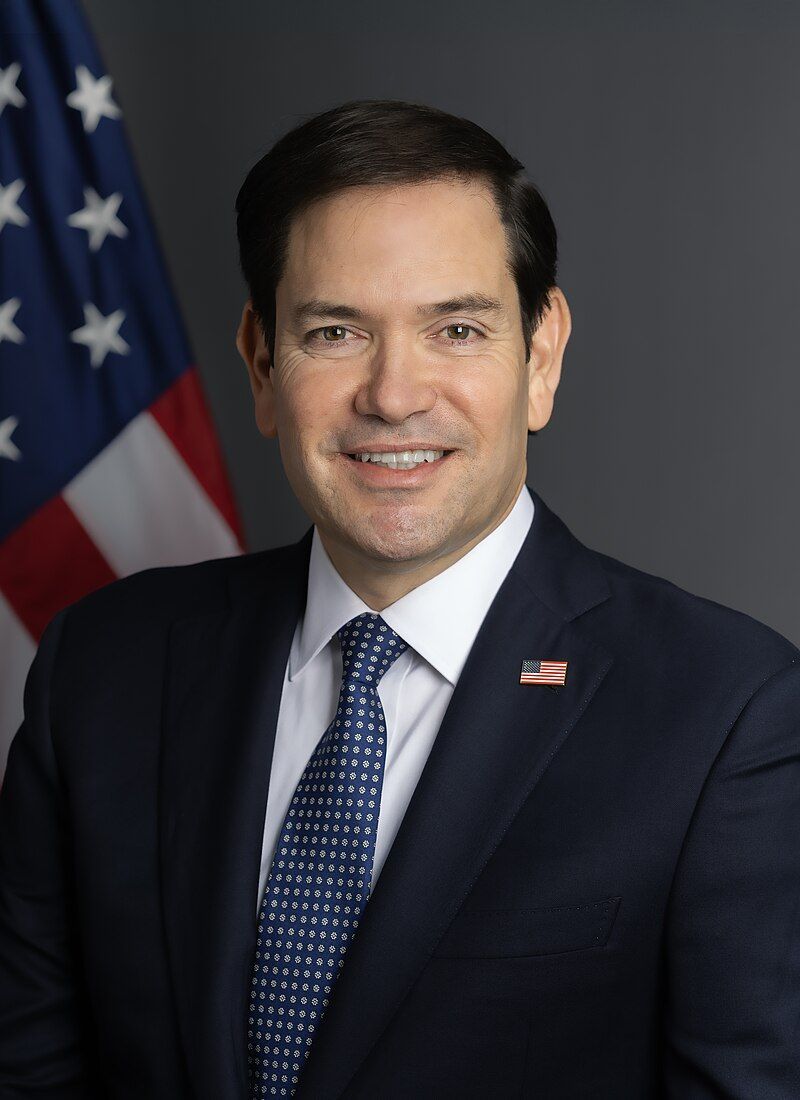The official portrait of Secretary of State Marco Rubio has the man smiling. Most photos of him in news reports of late shows him looking very serious, almost grimacing.
Not so long ago the general impression of a Secretary of State was someone who made a lot of plane trips to far flung corners of the world, usually in an effort to promote peace amid conflict.
Rubio's predecessor Antony Blinken comes to mind. He was always flying. But you got the feeling that all those air miles were not being rewarded with much or any progress in the likes of the Middle East.
Secretary Rubio has flown overseas too. But a good deal of his focus of late has turned inward. As well as being Secretary of State, Rubio has also served, in an acting capacity, as National Security Advisor, administrator of the United States Agency for International Development (USAID), and archivist of the United States.
He has overseen major cost cutting for USAID. The implications for many corners of the world from this action have yet to fully play out. Suffice it to say they will not be good for many of the poorest and threatened.
Interestingly, and separate to all this, Rubio, the son of Cuban immigrants, is taking a close interest in the immigration issue.
According to a report in USA Today, the Trump administration has a tough new message for foreigners in the United States: One strike, and you're out.
The paper reported: "Foreign nationals visiting or living in the country legally could lose their visa status if they run afoul of the law under the new and unforgiving so-called 'catch and revoke' policy, announced by Secretary of State Marco Rubio.
"There is now a one-strike policy: Catch-And-Revoke," Rubio said in a social media post on May 2.
"Whenever the government catches non-U.S. citizens breaking our laws, we will take action to revoke their status."
Added the report: "The policy, originally announced April 30 in a newsletter authored by Rubio, suggests it will pursue immigrants convicted of criminal activity, including domestic violence and assault.
"But the policy announcement didn't specify the spectrum of crimes that could result in a visa revocation, and immigration experts questioned how it might be implemented, given the Trump administration's far-reaching crackdown.
"David Bier, director of immigration studies at the libertarian Cato Institute, called the new policy "absurd" and contrary to U.S. immigration law.
"Wealthy, skilled people with other options will not settle in a country where their lives can be ruined for a speeding ticket or operating an illegal lemonade stand," he said in a post on X.
The State Department issues non-immigrant visas to tourists, students, nannies, investors, the spouses and children of legal permanent residents, and other categories of visitors and residents.
"Rubio said the State Department, under his leadership, "has now made clear that a visa is a privilege, not a right."
"Most recently, the administration aggressively targeted student visa holders who have protested Israel's war in Gaza or voiced pro-Palestinian views. Students with minor violations, including traffic infractions, have also seen their visas terminated.
"They stripped student visas from people for speeding tickets," said Aaron Reichlin-Melnick, senior fellow at the American Immigration Council, in a post on X. "Now they're suggesting they'll do the same to everyone."
The overall effect of Rubio touting a zero tolerance policy will only heighten nerves among those in other countries, Ireland included, planning to travel to the United States on visas, short and longer term.
As reported last week, the Union of Students in Ireland is urging students to be "cautious" about the potential risks involved in "activism" while on a J1 visa in the United States this summer.
"While activism is a vital part of student life and a right that should be protected, it is important that students fully understand the possible consequences for their visa status, including the risk of deportation, and take steps to safeguard their participation in such activities," said the body, which represents over 350,000 students in over 30 colleges across Ireland.
Thousands of Irish students avail of the J1 visa program every year. It's unlikely that J1 students are planning much in the way of "activism" during their summer sojourns. The priorities tend to be finding a job and securing a place to live. That's cause enough for tension and worry.
The warnings coming from Washington will only add to the collective angst in the months ahead.








